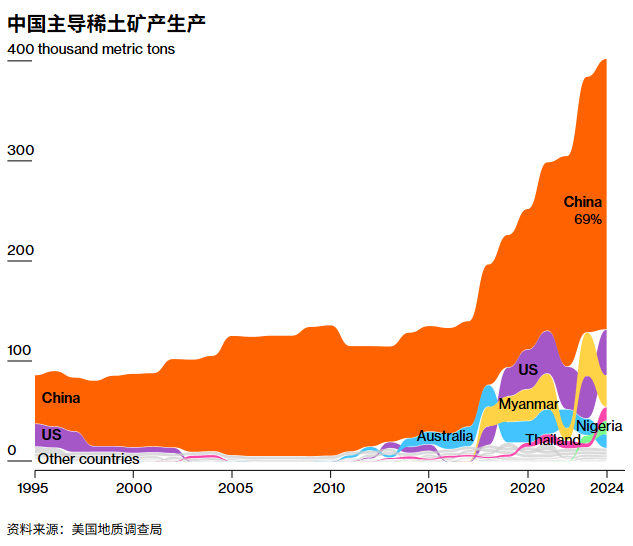Both sides accused each other of breaching the agreement reached in Geneva in May. At that time, the two sides agreed to at least temporarily lower tariffs that had climbed above 100%.
China said on Saturday that it has approved some applications for rare earth exports, but did not specify which countries or industries were involved.
Kevin Hassett, chair of the White House National Economic Council, said on CBS’s “Face the Nation” on Sunday: “We want rare earths, the magnets that are crucial for cell phones and all other products, to be operating as smoothly as they were before early April. We don’t want any technical details to slow down this process. They are very clear about this.”
This year, as Trump raised tariffs on Chinese goods exported to the US, Sino-US trade tensions escalated, triggering retaliation from Beijing. The Geneva agreement was intended to pave the way for a broader easing of tensions, but subsequent negotiations quickly broke down due to mutual accusations between the two sides.
The United States complains about the decline in shipments of rare earth magnets necessary for its electric vehicles and defense systems. China, in turn, is furious at the United States for restricting Huawei Technologies Co., Ltd.’s artificial intelligence chips, chip design software, aircraft engines, and for not issuing visas to over 280,000 Chinese students.
In London, US Treasury Secretary Scott Bessent, Commerce Secretary Howard Lutnick and US Trade Representative Jamison Greer will meet with a Chinese delegation led by Vice Premier He Lifeng of the State Council. The inclusion of Lutnick, who is in charge of restricting the sale of advanced technologies, indicates that Trump may be willing to consider lifting some restrictions that could hinder China’s long-term growth ambitions.

Despite Trump’s promise to reshape America’s trade relations, so far he has only reached a new trade agreement with the United Kingdom.
Unless Trump decides to extend it, the suspension period for the US to impose tariffs on Chinese goods will expire in August. The White House said that if no agreement is reached, Trump plans to restore the tariff rate to the level he first announced in April or lower than the current benchmark of 10%.
The chaos following the Geneva Conference highlighted the challenges of reaching an agreement between China and the United States.
Josh Lipsky, the chair of international economics at the Atlantic Council, said: “They left too many unanswered questions, and they all paid the price for it in the following weeks.” He added that the United States and China “just want to get back to the negotiating table in Switzerland, sign a few more pieces of paper, and really figure out what can be authorized, what can be allowed, and what cannot.”
A commentary published by Xinhua News Agency on Sunday criticized the United States for viewing economic issues from a security perspective, saying that “if this mindset is not adjusted, it will become the biggest obstacle to mutually beneficial cooperation among all parties.”
However, the statement also left room for improving relations and stated that “China and the United States share extensive common interests and broad space for cooperation, and the essence of the economic and trade relations between the two countries is mutual benefit and win-win.”
Trump then said that he was “honored” to welcome them to study in the United States.
Adam Farall and Michael Don of Bloomberg Economics said that although the atmosphere of the London talks was good, unlike the Geneva meeting, this round of talks was not in a hurry to lower tariff levels.
This time, there are no easy pickings, they wrote in a report before the talks. As the issues facing the negotiations become more complex, it is more difficult for both sides to achieve meaningful new results.


